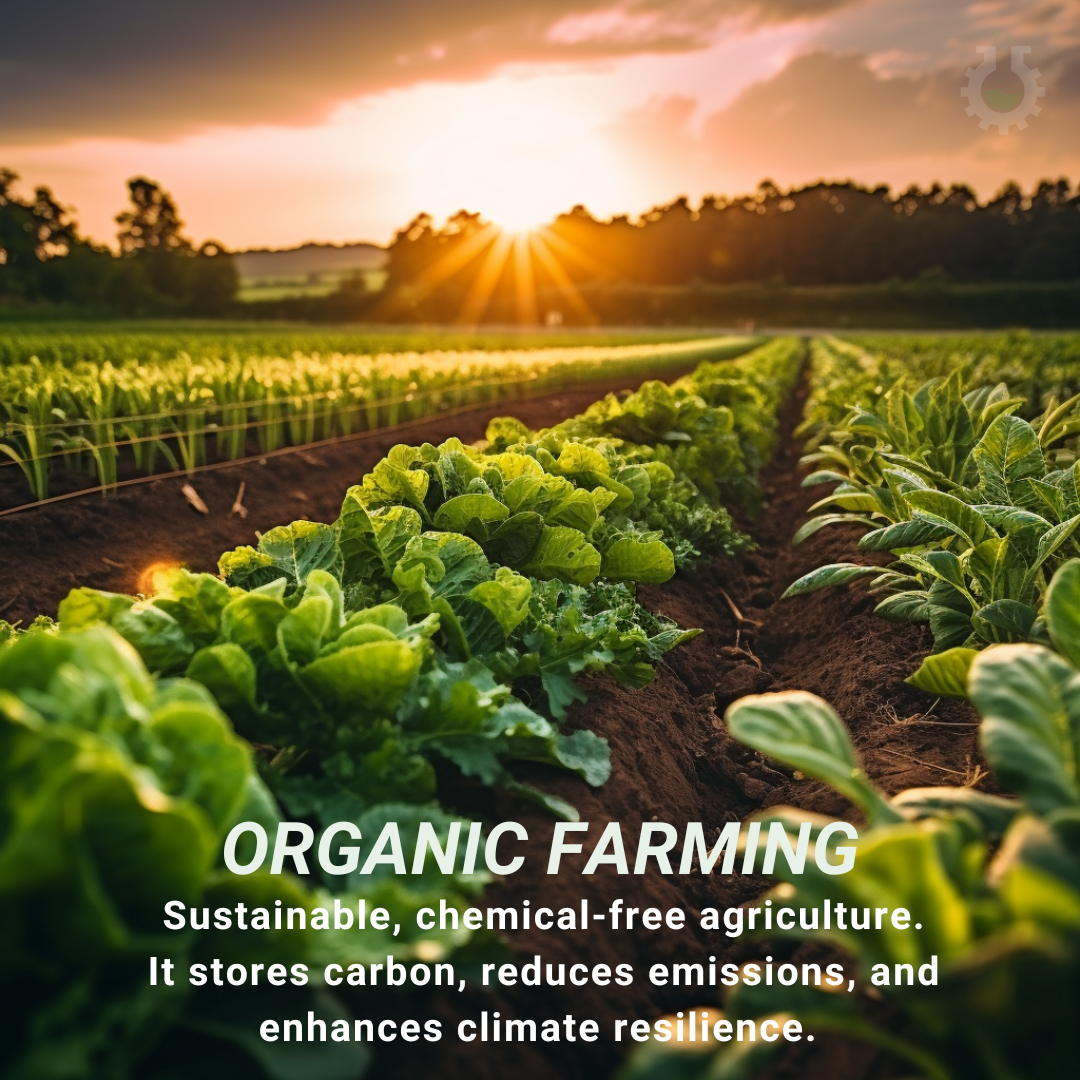November 1, 2023
Climate Change Poster Collection of the Day – Organic Farming
Book a Demo
Today’s Climate Change Poster Collection focuses on Organic farming, a powerful tool in our quest to cultivate a sustainable future. By dramatically reducing the amount of chemicals used in agriculture, organic farming plays a crucial role in reducing water pollution and soil degradation. This approach to farming, which emphasizes the use of natural substances and processes, ensures that our agricultural activities are in harmony with nature, preserving the integrity of our ecosystems.
Moreover, the use of sustainable irrigation methods is another way to make agriculture more environmentally friendly. These methods can greatly reduce water wastage, a particularly important issue given the increasing scarcity of freshwater resources. By implementing efficient irrigation strategies, we can conserve water and ensure that our agricultural systems are resilient and sustainable.
The implementation of crop rotation practices is another key aspect of sustainable farming. By alternating the types of crops grown in a particular area, we can improve soil health, increase biodiversity, and enhance the overall sustainability of farming. Crop rotation helps to maintain the balance of nutrients in the soil, preventing its depletion and fostering the growth of a diverse range of organisms.
Renewable energy sources are also becoming increasingly important in farming. By harnessing the power of the sun, wind, and other renewable resources, we can significantly reduce greenhouse gas emissions from agriculture. This transition towards cleaner energy sources is not only good for the planet, but also for the economic sustainability of farms.
Agroforestry, a practice that combines agriculture and forestry, is another innovative approach to sustainable farming. By integrating trees into agricultural landscapes, agroforestry can help mitigate deforestation and promote biodiversity. This approach creates a synergy between agriculture and forestry, leading to more resilient and diverse ecosystems.
In the face of climate change, farmers are increasingly turning to climate-smart agriculture techniques. These methods, which include practices like improved crop varieties and better water management, can help farmers adapt to and mitigate the impacts of climate change. They allow farmers to continue producing food while reducing their environmental footprint.
The use of precision agriculture technology is another promising trend. This technology, which includes tools like GPS and remote sensing, allows farmers to manage their fields with unprecedented precision. By optimizing the use of resources, precision agriculture can enhance efficiency and reduce environmental impacts in farming.
Finally, vertical farming, an innovative method of food production, has the potential to revolutionize agriculture. By growing crops in vertical layers, this method can greatly reduce land use in agriculture. It represents a paradigm shift in the way we produce food, opening up new possibilities for sustainable and urban farming.
These sustainable farming practices and technologies offer a way forward in the face of environmental challenges. Through their implementation, we can cultivate a future where agriculture is not only productive but also sustainable and respectful of our planet.
Discover an inspiring collection of climate change poster.



